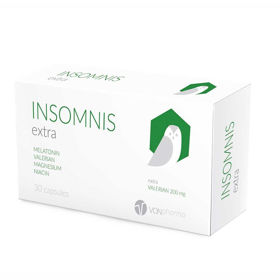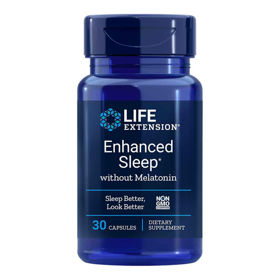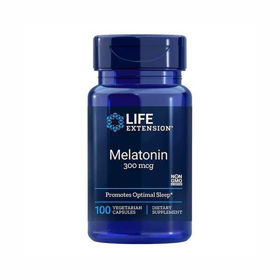Vprašanje stranke:
Na kakšen način delujejo tablete za spanje? Vprašanje anonimne stranke
Odgovor farmacevta:
Tablete za spanje, znane tudi kot hipnotiki ali hipnotična zdravila, delujejo na različne načine, odvisno od njihovega mehanizma delovanja in aktivne sestavine. Tu je nekaj najpogostejših načinov, kako delujejo:
- Povečanje učinkovitosti GABA: večina tablet za spanje deluje tako, da povečajo aktivnost nevrotransmiterja gama-aminobutirneakisline (GABA) v možganih. GABA deluje kot naravni pomirjevalni nevrotransmiter, ki zavira aktivnost živčnih celic in tako pomaga pri zmanjšanju anksioznosti in olajšanju spanja.
- Učinki na receptorje benzodiazepina: nekatera hipnotična zdravila spadajo v skupino benzodiazepinov, ki delujejo tako, da povečajo učinke GABA na receptorje v možganih. To povzroči sprostitev mišic, zmanjšanje tesnobe in olajšanje spanja.
- Vpliv na receptorje za melatonin: melatonin je hormon, ki uravnava cikle spanja in budnosti. Nekatera zdravila za spanje vsebujejo sintetični melatonin ali druge snovi, ki vplivajo na receptorje, kar lahko pomaga pri regulaciji spanja in izboljšanju kakovosti spanca.
- Blokada histaminskih receptorjev: nekateri antihistaminiki, ki se uporabljajo tudi kot tablete za spanje, delujejo tako, da blokirajo histaminske receptorje v možganih. Histamin je nevrotransmiter, ki pomaga pri budnosti, zato lahko blokiranje teh receptorjev pomaga pri zmanjšanju budnosti in olajšanju spanja.
- Vpliv na serotonin in druge nevrotransmiterje: nekatera zdravila za spanje lahko vplivajo tudi na druge nevrotransmiterje, kot je serotonin, ki ima vlogo pri regulaciji razpoloženja, spanja in apetita. Spremembe v ravneh teh nevrotransmiterjev lahko vplivajo na cikle spanja in izboljšajo splošno kakovost spanca.
Ali imajo tablete za spanje stranske učinke?
Da, tablete za spanje lahko povzročijo številne stranske učinke, odvisno od specifičnega zdravila in posameznika.
Nekateri pogosti stranski učinki vključujejo:
- zaspanost čez dan,
- zmedenost ali težave s koncentracijo,
- glavobol,
- suha usta,
- slabost ali bruhanje,
- vrtoglavica,
- motnje vida,
- težave s prebavo, vključno z zaprtjem ali drisko,
- povečanje apetita ali spremembe v apetitu,
- zasvojenost ali odvisnost od zdravila in/ali
- povečano tveganje za padce in nesreče, še posebej pri starejših osebah.
Poleg teh lahko nekateri hipnotiki povzročijo tudi posebne stranske učinke, kot so nočne more, halucinacije, neobičajno vedenje med spanjem (npr. sleepwalking) in paradoksni učinki, kot je povečana nespečnost ali povečana razdražljivost.
Ali obstajajo naravne tablete za spanec?
Da, obstajajo naravne alternative tabletam za spanje, ki lahko pomagajo pri izboljšanju kakovosti spanca brez uporabe farmacevtskih hipnotikov. Te naravne možnosti pogosto vključujejo rastlinske izvlečke, minerale in druge naravne sestavine.
Naravne tablete za spanje vključujejo:
- Melatonin: melatonin je naravni hormon, ki ga proizvaja telo in pomaga uravnavati cikle spanja in budnosti. Dodatki melatonina se lahko uporabljajo za pomoč pri spanju, še posebej pri ljudeh, ki imajo težave s spanjem zaradi spremenjenih ciklov budnosti in spanja, kot so jet lag ali neredni urniki.
- L-triptofan: L-triptofan je esencialna aminokislina, ki igra ključno vlogo pri tvorbi serotonina, nevrotransmiterja, ki pomaga pri uravnavanju razpoloženja in spanja.
- Ekstrakt baldrijana: baldrijan je rastlina, ki se tradicionalno uporablja za zdravljenje nespečnosti in izboljšanje spanca.
- Ekstrakt kamilice: kamilica je znana po svojih pomirjevalnih in sproščujočih lastnostih ter lahko pomaga pri izboljšanju kakovosti spanca.
- Ekstrakt pasijonke: pasijonka je rastlina, ki lahko pomaga pri spodbujanju spanja.
- Magnezij: magnezij je mineral, ki igra ključno vlogo pri sproščanju mišic in sprostitvi, kar lahko pomaga pri izboljšanju kakovosti spanca.
Naravne tablete za spanje so na voljo v različnih oblikah, vključno s tabletami, kapsulami, praški in tekočimi formulami.
Zanimivo branje: Melatonin za spanje








 Facebook
Facebook
 Instagram
Instagram
 info@moja-lekarna.com
info@moja-lekarna.com

